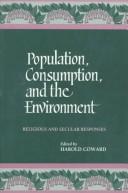| Listing 1 - 10 of 35 | << page >> |
Sort by
|

ISBN: 0791485889 1417538740 9781417538744 0791459101 9780791459102 0791459098 9780791459096 9780791485880 Year: 2003 Publisher: Albany : State University of New York Press,
Abstract | Keywords | Export | Availability | Bookmark
 Loading...
Loading...Choose an application
- Reference Manager
- EndNote
- RefWorks (Direct export to RefWorks)
Through examinations of Gandhi's critics, both individuals and groups, this book shows the complexity of Indian society and opinion at the time of the Indian Independence Movement.
Gandhi, --- Aṇṇal Kānti, --- Gāndhi, Em. Ke., --- Gandhi, M. K. --- Gāndhī, Ma. Ka., --- Gāndhī, Mōhanadāsa Karamacanda, --- Gandhi, Mohandas, --- Gandhi, Mohandas K. --- Gandhi, Mohandas Karamchand, --- Gāndhījī, --- Gandi, --- Gandi, M. K. --- Gāndī, Mahātamā, --- Gandi, Mahattŭma, --- Gandi, Mokhandas Karamchand, --- Gandī, Muhandās Kāramchānd, --- Ganji, Mahatoma, --- Ghāndi, --- Ghāndī, Mūhāndās Karamshānd, --- Gkanti, --- Kan-ti, --- Kandi, --- Kānti, --- Kānti, Mōkan̲tās Karamcant, --- Kāntiyaṭikaḷ, --- Mahātmā Gāndhījī, --- Mahātmājī, --- Makātmā Kānti, --- Mōhanadāsa Karamacanda Gāndhī, --- Mōkan̲tās Karamcant Kānti, --- גאנדי, מ.ק --- גאנדי, --- גנדהי, --- مهاتما گاندهى --- گاندهى، مهاتما --- گاندى، مهاتما --- گاندى، مهنداس کارمچاند --- گاندھى، --- Political and social views. --- India --- Bharat --- Bhārata --- Government of India --- Ḣindiston Respublikasi --- Inde --- Indië --- Indien --- Indii︠a︡ --- Indland --- Indo --- Republic of India --- Sāthāranarat ʻIndīa --- Yin-tu --- インド --- هند --- Индия --- Politics and government --- History --- Autonomy and independence movements.

ISBN: 0791487911 0585491372 9780585491370 0791454991 9780791454992 0791455009 9780791455005 9780791487914 Year: 2002 Publisher: Albany : State University of New York Press,
Abstract | Keywords | Export | Availability | Bookmark
 Loading...
Loading...Choose an application
- Reference Manager
- EndNote
- RefWorks (Direct export to RefWorks)
Harold Coward explores how the psychological aspects of Yoga philosophy have been important to intellectual developments both East and West. Foundational for Hindu, Jaina, and Buddhist thought and spiritual practice, Patañjali's Yoga Sutras, the classical statement of Eastern Yoga, are unique in their emphasis on the nature and importance of psychological processes. Yoga's influence is explored in the work of both the seminal Indian thinker Bhartrhari (c. 600 C.E.) and among key figures in Western psychology: founders Freud and Jung, as well as contemporary transpersonalists such as Washburn, Tart, and Ornstein.Coward shows how the yogic notion of psychological processes makes Bhartrhari's philosophy of language and his theology of revelation possible. He goes on to explore how Western psychology has been influenced by incorporating or rejecting Patañjali's Yoga. The implications of these trends in Western thought for mysticism and memory are examined as well. This analysis results in a notable insight, namely, that there is a crucial difference between Eastern and Western thought with regard to how limited or perfectible human nature is—the West maintaining that we as humans are psychologically, philosophically, and spiritually limited or flawed in nature and thus not perfectible, while Patañjali's Yoga and Eastern thought generally maintain the opposite. Different Western responses to the Eastern position are noted, from complete rejection by Freud, Jung, and Hick, to varying degrees of acceptance by transpersonal thinkers.
East and West. --- Yoga. --- Psychology and religion. --- Civilization, Western --- Civilization, Oriental --- Occident and Orient --- Orient and Occident --- West and East --- Eastern question --- Yoga --- Yoga exercises --- Exercise --- Philosophy, Indic --- Religion and psychology --- Religion --- Asian influences --- Oriental influences --- Western influences --- Hinduism --- Jung, C. G. --- Freud, Sigmund, --- Patañjali. --- Jung, Karl Gustav, --- I︠U︡nh, Karl Hustav, --- Jung, Carl Gustav, --- Yung, Ḳ. G. --- Yungu, C. G. --- I︠U︡ng, Karl Gustav, --- יונג, קרל גוסטאב --- יונג, קרל גוסטב --- יונג, ק. ג. --- 榮格, --- C. G. ユング, --- Yūng, Kārl Gustāv, --- يونگ، کارل گستاو --- Freud, Sigmund --- Patañjalī. --- Jung, Carl Gustav --- Patañjali. --- Jung, C. G.,

ISBN: 0791478858 1435632117 9781435632110 9780791473368 0791473368 9780791478851 079147335X 0791473368 9780791473351 9780791478851 Year: 2008 Publisher: Albany : State University of New York Press,
Abstract | Keywords | Export | Availability | Bookmark
 Loading...
Loading...Choose an application
- Reference Manager
- EndNote
- RefWorks (Direct export to RefWorks)
How perfectible is human nature as understood in Eastern and Western philosophy, psychology, and religion? Harold Coward examines some of the very different answers to this question. He poses that in Western thought, including philosophy, psychology, Judaism, Christianity, and Islam, human nature is often understood as finite, flawed, and not perfectible—in religion requiring God's grace and the afterlife to reach the goal. By contrast, Eastern thought arising in India frequently sees human nature to be perfectible and presumes that we will be reborn until we realize the goal—the various yoga psychologies, philosophies, and religions of Hinduism and Buddhism being the paths by which one may perfect oneself and realize release from rebirth. Coward uses the striking differences in the assessment of how perfectible human nature is as the comparative focus for this book.
Philosophical anthropology. --- Perfection --- Perfection. --- Anthropology, Philosophical --- Man (Philosophy) --- Civilization --- Life --- Ontology --- Humanism --- Persons --- Philosophy of mind --- Holiness --- Righteousness --- Sanctification --- Flawlessness --- Perfection (Philosophy) --- Perfectionism (Philosophy) --- Virtuosity --- Wholeness --- Mysticism --- Philosophy --- Excellence --- Imperfection --- Religious aspects. --- Perfection - Religious aspects.

ISBN: 0585075344 9780585075341 0791438457 0791438465 0791499979 Year: 1998 Publisher: Albany, NY : State University of New York Press,
Abstract | Keywords | Export | Availability | Bookmark
 Loading...
Loading...Choose an application
- Reference Manager
- EndNote
- RefWorks (Direct export to RefWorks)
"The most vigorously developing economies and largest markets today are located on the Pacific Rim, suggesting that the economic "center of gravity" is shifting from the shores of the North Atlantic. Yet the Pacific Rim is also the location of much of the earth's natural beauty as well as the home of still-thriving traditional aboriginal societies. The Pacific Basin's environmental assets and its aboriginal peoples are confronted by the forces of development. The resulting tension between traditional and modern approaches to the environment are addressed in this book by an interdisciplinary team of scientists, social scientists, and humanists."--Jacket.
Economic development --- Environmental policy --- Environment and state --- Environmental control --- Environmental management --- Environmental protection --- Environmental quality --- State and environment --- Environmental auditing --- Development, Economic --- Economic growth --- Growth, Economic --- Economic policy --- Economics --- Statics and dynamics (Social sciences) --- Development economics --- Resource curse --- Environmental aspects --- Government policy --- Pacific Area --- Asia-Pacific Region --- Asian-Pacific Region --- Asian and Pacific Council countries --- Pacific Ocean Region --- Pacific Region --- Pacific Rim --- Economic conditions. --- Environmental conditions.

ISBN: 0585046174 9780585046174 0791426718 0791426726 0791499936 Year: 1995 Publisher: Albany, NY : State University of New York Press,
Abstract | Keywords | Export | Availability | Bookmark
 Loading...
Loading...Choose an application
- Reference Manager
- EndNote
- RefWorks (Direct export to RefWorks)
"This book concentrates on the different ways in which the major world religions view the problems of overpopulation and excess resource consumption and how they approach possible solutions. After examining the natural background and the human context, the book moves on to consider both religious and secular approaches. It analyzes how a particular religion's scriptures comment on the nature of people, the environment, people's place in the environment, and their roles and responsibilities. The historical dimension is derived from reviewing a particular religion's record in teaching about these issues, often demonstrating how broader issues are addressed. Practical lessons are learned from religious guidelines that deal with current problems and offer solutions. The authors consider Aboriginal spirituality, Judaism, Christianity, Islam, Hinduism, Buddhism, and Chinese religions. The secular approaches include secular ethics, North-South relations, market forces, the status of women, and international law." (Excerpt).
Population policy --- Population --- Nature --- Consumption (Economics) --- Population Density. --- Religion. --- Conservation of Natural Resources. --- Population Control. --- Public Policy. --- Economics --- Environment --- Health Resources --- Women's Rights --- Conservation of Natural Resources --- Population Density --- Population Control --- Public Policy --- Ethics --- Socioeconomic Factors --- Organization and Administration --- Legislation as Topic --- Religion --- Health Care Economics and Organizations --- Ecological and Environmental Phenomena --- Health Planning --- Humanities --- Population Dynamics --- Sociology --- Morals --- Delivery of Health Care --- Social Control, Formal --- Human Rights --- Demography --- Technology, Industry, and Agriculture --- Philosophy --- Social Control Policies --- Environment and Public Health --- Social Sciences --- Population Characteristics --- Health Care Quality, Access, and Evaluation --- Health Services Administration --- Policy --- Epidemiologic Measurements --- Health Care --- Anthropology, Education, Sociology and Social Phenomena --- Technology, Industry, Agriculture --- Biological Phenomena --- Psychology, Social --- Behavior and Behavior Mechanisms --- Public Health --- Phenomena and Processes --- Psychiatry and Psychology --- Business & Economics --- Ecological and Environmental Concepts --- Ecological and Environmental Processes --- Healthcare Economics and Organizations --- Health Care Economics --- Health Economics --- Healthcare Economics --- Care Economic, Health --- Economic, Health --- Economic, Health Care --- Economic, Healthcare --- Economics, Health Care --- Health Care Economic --- Health Economic --- Healthcare Economic --- Prayer --- Religious Beliefs --- Religious Ethics --- Beliefs, Religious --- Ethic, Religious --- Prayers --- Religions --- Religious Belief --- Spiritual Therapies --- Secularism --- Constitutional Amendments --- Health Legislation as Topic --- Laws and Statutes --- Legislation, Health --- Model Legislation --- Population Law --- Statutes and Laws --- Health Legislation --- Amendment, Constitutional --- Amendments, Constitutional --- Constitutional Amendment --- Law, Population --- Laws, Population --- Legislation, Model --- Population Laws --- Demographic Effectiveness --- Population Programs --- Population Programs, Goals --- Control, Population --- Controls, Population --- Effectiveness, Demographic --- Population Controls --- Population Program --- Program, Population --- Programs, Population --- Contraception --- Sterilization, Reproductive --- Administration and Organization --- Administrative Technics --- Administrative Techniques --- Coordination, Administrative --- Logistics --- Supervision --- Technics, Administrative --- Techniques, Administrative --- Administration --- Administrative Coordination --- Administrative Technic --- Administrative Technique --- Technic, Administrative --- Technique, Administrative --- Overpopulation --- Population Size --- Underpopulation --- Densities, Population --- Density, Population --- Population Densities --- Population Sizes --- Factors, Socioeconomic --- High-Income Population --- Land Tenure --- Standard of Living --- Social Inequalities --- Social Inequality --- Factor, Socioeconomic --- High Income Population --- High-Income Populations --- Inequalities, Social --- Inequality, Social --- Living Standard --- Living Standards --- Population, High-Income --- Populations, High-Income --- Socioeconomic Factor --- Tenure, Land --- Carrying Capacity --- Deforestation --- Desertification --- Environmental Protection --- Natural Resources Conservation --- Protection, Environmental --- Capacities, Carrying --- Capacity, Carrying --- Carrying Capacities --- Conservation, Natural Resources --- Natural Resources --- Egoism --- Ethical Issues --- Metaethics --- Moral Policy --- Natural Law --- Situational Ethics --- Ethical Issue --- Ethics, Situational --- Issue, Ethical --- Issues, Ethical --- Law, Natural --- Laws, Natural --- Moral Policies --- Natural Laws --- Policies, Moral --- Policy, Moral --- Censorship, Research --- Affirmative Action --- Migration Policy --- Population Policy --- Social Protection --- Social Policy --- Action, Affirmative --- Migration Policies --- Policies, Migration --- Policies, Population --- Policies, Public --- Policies, Social --- Policy, Migration --- Policy, Population --- Policy, Public --- Policy, Social --- Population Policies --- Protection, Social --- Public Policies --- Social Policies --- Policy Making --- Resources --- Health Resource --- Resource --- Resource, Health --- Resources, Health --- Environmental Impact --- Environmental Impacts --- Impact, Environmental --- Impacts, Environmental --- Environments --- Environmental Health --- Capital --- Conditions, Economic --- Consumption --- Cost of Living --- Easterlin Hypothesis --- Economic Conditions --- Economic Policies --- Economic Policy --- Economics, Home --- Home Economics --- Household Consumption --- Macroeconomic Factors --- Microeconomic Factors --- Policies, Economic --- Policy, Economic --- Production --- Remittances --- Utility Theory --- Consumer Price Index --- Condition, Economic --- Consumer Price Indices --- Consumption, Household --- Economic Condition --- Factor, Macroeconomic --- Factor, Microeconomic --- Factors, Macroeconomic --- Factors, Microeconomic --- Household Consumptions --- Hypothesis, Easterlin --- Index, Consumer Price --- Indices, Consumer Price --- Living Cost --- Living Costs --- Remittance --- Theories, Utility --- Theory, Utility --- Utility Theories --- Consumer demand --- Consumer spending --- Consumerism --- Spending, Consumer --- Demand (Economic theory) --- Anthropogenic effects on nature --- Ecological footprint --- Human beings --- Anthropogenic soils --- Human ecology --- Human population --- Human populations --- Population growth --- Populations, Human --- Malthusianism --- Community Health --- Environment, Preventive Medicine & Public Health --- Environment, Preventive Medicine and Public Health --- Health, Community --- Health, Public --- Preventive Medicine --- Education, Public Health Professional --- Behavior And Behavior Mechanism --- Psychology, Perceptual --- Social Psychology --- Perceptual Psychology --- Biologic Phenomena --- Biological Phenomenon --- Biological Process --- Phenomena, Biological --- Biological Processes --- Phenomena, Biologic --- Phenomenon, Biological --- Process, Biological --- Processes, Biological --- Community-Based Distribution --- Contraceptive Distribution --- Delivery of Healthcare --- Dental Care Delivery --- Distribution, Non-Clinical --- Distribution, Nonclinical --- Distributional Activities --- Healthcare --- Healthcare Delivery --- Healthcare Systems --- Non-Clinical Distribution --- Nonclinical Distribution --- Delivery of Dental Care --- Health Care Delivery --- Health Care Systems --- Activities, Distributional --- Activity, Distributional --- Care, Health --- Community Based Distribution --- Community-Based Distributions --- Contraceptive Distributions --- Deliveries, Healthcare --- Delivery, Dental Care --- Delivery, Health Care --- Delivery, Healthcare --- Distribution, Community-Based --- Distribution, Contraceptive --- Distribution, Non Clinical --- Distributional Activity --- Distributions, Community-Based --- Distributions, Contraceptive --- Distributions, Non-Clinical --- Distributions, Nonclinical --- Health Care System --- Healthcare Deliveries --- Healthcare System --- Non Clinical Distribution --- Non-Clinical Distributions --- Nonclinical Distributions --- System, Health Care --- System, Healthcare --- Systems, Health Care --- Systems, Healthcare --- Measurements, Epidemiologic --- Epidemiologic Measurement --- Measurement, Epidemiologic --- Policies --- Administration, Health Services --- Health Services --- Healthcare Quality, Access, and Evaluation --- Population Heterogeneity --- Population Statistics --- Characteristic, Population --- Characteristics, Population --- Heterogeneity, Population --- Population Characteristic --- Statistics, Population --- Science, Social --- Sciences, Social --- Social Science --- Control Policies, Social --- Control Policy, Social --- Policies, Social Control --- Policy, Social Control --- Social Control Policy --- Pharmacy Philosophy --- Philosophical Overview --- Hedonism --- Stoicism --- Overview, Philosophical --- Overviews, Philosophical --- Pharmacy Philosophies --- Philosophical Overviews --- Philosophies --- Philosophies, Pharmacy --- Philosophy, Pharmacy --- Accounting, Demographic --- Analyses, Demographic --- Analyses, Multiregional --- Analysis, Period --- Brass Technic --- Brass Technique --- Demographers --- Demographic Accounting --- Demographic Analysis --- Demographic Factor --- Demographic Factors --- Demographic Impact --- Demographic Impacts --- Demographic Survey --- Demographic Surveys --- Demographic and Health Surveys --- Demographics --- Demography, Historical --- Demography, Prehistoric --- Factor, Demographic --- Factors, Demographic --- Family Reconstitution --- Historical Demography --- Impact, Demographic --- Impacts, Demographic --- Multiregional Analysis --- Period Analysis --- Population Spatial Distribution --- Prehistoric Demography --- Reverse Survival Method --- Stable Population Method --- Survey, Demographic --- Surveys, Demographic --- Demographer --- Demographic --- Demographic and Health Survey --- Population Distribution --- Analyses, Period --- Analysis, Demographic --- Analysis, Multiregional --- Demographic Analyses --- Demographies, Historical --- Demographies, Prehistoric --- Distribution, Population --- Distribution, Population Spatial --- Distributions, Population --- Distributions, Population Spatial --- Family Reconstitutions --- Historical Demographies --- Method, Reverse Survival --- Method, Stable Population --- Methods, Reverse Survival --- Methods, Stable Population --- Multiregional Analyses --- Period Analyses --- Population Distributions --- Population Methods, Stable --- Population Spatial Distributions --- Prehistoric Demographies --- Reconstitution, Family --- Reconstitutions, Family --- Reverse Survival Methods --- Spatial Distribution, Population --- Spatial Distributions, Population --- Stable Population Methods --- Technic, Brass --- Technique, Brass --- Collective Human Rights --- Equal Rights --- Linguistic Rights --- Right to Housing and Shelter --- Rights of Indigenous Peoples --- Human Rights, Collective --- Indigenous Peoples Rights --- Rights, Collective Human --- Rights, Equal --- Rights, Linguistic --- Social Justice --- Human Rights Abuses --- Regulation --- Social Control --- Control, Social --- Controls, Social --- Formal Social Control --- Formal Social Controls --- Regulations --- Social Controls --- Morality --- Retrospective Moral Judgment --- General Social Development and Population --- Demographic Aging --- Demographic Transition --- Optimum Population --- Population Decrease --- Population Pressure --- Population Replacement --- Population Theory --- Residential Mobility --- Rural-Urban Migration --- Stable Population --- Stationary Population --- Neomalthusianism --- Aging, Demographic --- Decrease, Population --- Decreases, Population --- Demographic Transitions --- Dynamics, Population --- Migration, Rural-Urban --- Migrations, Rural-Urban --- Mobilities, Residential --- Mobility, Residential --- Optimum Populations --- Population Decreases --- Population Pressures --- Population Replacements --- Population Theories --- Population, Optimum --- Population, Stable --- Population, Stationary --- Populations, Optimum --- Populations, Stable --- Populations, Stationary --- Pressure, Population --- Pressures, Population --- Replacement, Population --- Replacements, Population --- Residential Mobilities --- Rural Urban Migration --- Rural-Urban Migrations --- Stable Populations --- Stationary Populations --- Theories, Population --- Theory, Population --- Transition, Demographic --- Transitions, Demographic --- Life History Traits --- Genetics, Population --- PL93-641 --- Public Law 93-641 --- Health and Welfare Planning --- National Health Planning and Resources Development Act of 1974 --- Planning, Health and Welfare --- State Health Planning, United States --- Planning, Health --- Public Law 93 641 --- Planning Techniques --- Woman's Rights --- Women's Status --- Women's Liberation --- Liberation, Women's --- Right, Woman's --- Right, Women's --- Rights, Woman's --- Rights, Women's --- Status, Women's --- Woman Rights --- Woman's Right --- Women Status --- Women's Right --- Religious aspects. --- Moral and ethical aspects. --- Environmental aspects. --- Effect of human beings on. --- Moral and religious aspects --- organization & administration --- Consumption (Economics). --- Religious aspects --- Moral and ethical aspects --- Environmental aspects --- Influence on nature --- Economic and Social Factors --- Social and Economic Factors --- Socioeconomic Characteristics --- Characteristic, Socioeconomic --- Socioeconomic Characteristic --- Psychiatry

ISBN: 0585092818 9780585092812 0887060528 088706051X 079149991X Year: 1985 Publisher: [Place of publication not identified] State University of New York Press
Abstract | Keywords | Export | Availability | Bookmark
 Loading...
Loading...Choose an application
- Reference Manager
- EndNote
- RefWorks (Direct export to RefWorks)
Yoga --- East and West --- Psychology and religion --- Psychology --- Social Sciences --- Religion and psychology --- Religion --- Civilization, Western --- Civilization, Oriental --- Occident and Orient --- Orient and Occident --- West and East --- Eastern question --- Yoga exercises --- Exercise --- Philosophy, Indic --- Asian influences --- Oriental influences --- Western influences --- Hinduism --- Jung, C. G. --- Jung, Carl Gustav --- Jung, Karl Gustav, --- I︠U︡nh, Karl Hustav, --- Jung, Carl Gustav, --- Yung, Ḳ. G. --- Yungu, C. G. --- I︠U︡ng, Karl Gustav, --- יונג, קרל גוסטאב --- יונג, קרל גוסטב --- יונג, ק. ג. --- 榮格, --- C. G. ユング, --- Yūng, Kārl Gustāv, --- يونگ، کارل گستاو
Book
ISBN: 0585089957 9780585089959 0887065716 9780887065712 0887065724 9780887065729 0791499928 Year: 1987 Publisher: Albany : State University of New York Press,
Abstract | Keywords | Export | Availability | Bookmark
 Loading...
Loading...Choose an application
- Reference Manager
- EndNote
- RefWorks (Direct export to RefWorks)
Religious pluralism --- Pluralism (Religion) --- Pluralism --- Religion --- Religions --- Hinduism.
Book
ISBN: 1438475772 9781438475776 9781438475752 1438475756 9781438475769 1438475764 Year: 2019 Publisher: Albany
Abstract | Keywords | Export | Availability | Bookmark
 Loading...
Loading...Choose an application
- Reference Manager
- EndNote
- RefWorks (Direct export to RefWorks)
In academic religious studies and musicology, little attention has been given to chanted word, hymns, and songs, yet these are often the key spiritual practices for lay devotees. To address this gap in knowledge, Harold Coward presents a thematic study of sacred sound as it functions in word, chant, and song for devotees in the Hindu, Buddhist, Islamic, and Sikh traditions. Each chapter begins with a brief introduction of a particular tradition's word/scripture, followed by case studies showcasing the diversity of understanding and the range of chant and song in devotee practice, and concludes with a brief illustration of new trends in music and chant within the tradition. Written in a style that will appeal to both scholars and lay readers, technical terms are clearly explained and case studies explicitly include devotees' personal experiences of songs and chants in public and private religious ritual.
Hindu music --- Buddhist music --- Islamic music --- Sikh music --- Music, Sikh --- Sikhs --- Sacred music --- Buddhists --- Music, Buddhist --- Hindus --- History and criticism.

ISBN: 9781570751196 1570751196 Year: 1999 Publisher: Maryknoll: Orbis,
Abstract | Keywords | Export | Availability | Bookmark
 Loading...
Loading...Choose an application
- Reference Manager
- EndNote
- RefWorks (Direct export to RefWorks)
Experts from six traditions: Judaism, Christianity, Islam, Hinduism, Buddhism, and Chinese religions discuss rituals, practices, and emotions as they relate to death and the hope of life that follows death.
Future life --- Death
Book
Year: 1980 Publisher: Delhi: Motilal Banarsidass,
Abstract | Keywords | Export | Availability | Bookmark
 Loading...
Loading...Choose an application
- Reference Manager
- EndNote
- RefWorks (Direct export to RefWorks)
| Listing 1 - 10 of 35 | << page >> |
Sort by
|

 Search
Search Feedback
Feedback About
About Help
Help News
News